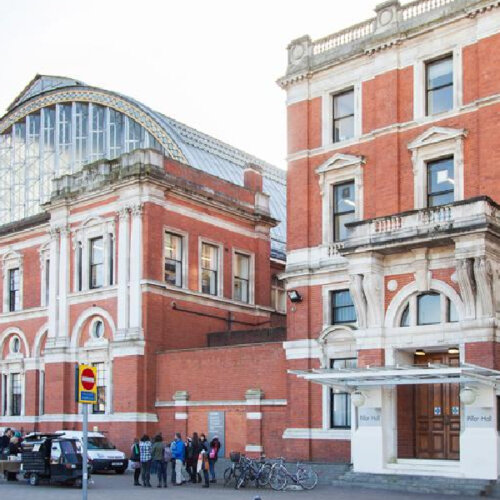Trends from The Independent Hotel Show

The Independent Hotel Show, in partnership with James Hallam Insurance Brokers, made its return to Olympia London Oct. 15 and 16, bringing together the independent hotelier and design community under one roof.
Here is the show’s take on which trends were most evident in the products displayed from both the exhibitors and in the various break-out areas.
Walls inspired by (playful) nature
As well as botanical interiors that sprouted from maximalism, organic textures in surface design have evolved in 2024—no longer is this trend purely about referencing nature. Instead, it has moved on to embrace playfulness, something that boutique hotels are able to wholly embrace.
Asrin Wallprint captivated attendees with it digitally printed wallpapers. Meanwhile, ATA Designs showcased a selection of textured wallcoverings inspired by all things British. Joris Kuipers introduced the BERM collection, which brings the outdoors inside through its leaf-like structures.
A sense of comfort
Curved, soft-edges and organic shapes, in both furniture and lighting design, were showcased by various exhibitors during the show. Corston, for example, presented its Brookfield lighting collection. The pendant’s three-tiered shade features a blend of modern minimalism and classic design.
This trend was also explored through the various products and technology displayed by bed manufacturers such as Hypnos, Naturalmat and Silentnight Group, all introducing new materials inspired by the science of sleep.
Exploring this concept away from FF&E, Crown International’s Clean Air range of paint, which is 99% free of VOCs, is made from water-based air purifying technology formulation. As a result, the paint absorbs chemicals and removes up to 45% of the formaldehyde present from the air.
Elsewhere, the QuietRoom, curated by EventWell, brought this trend to life. The quiet space provided a nook away from the bustling show floor for attendees to unwind.
Versatile living
As guests’ needs evolve, multifunctional design has surged in popularity, creating spaces that shift from coworking hubs to lounges or even event venues. Boutique hotels can capitalize on this trend with modular furniture and flexible layouts that seamlessly adapt to diverse guest activities throughout the day.
Swift’s Model 3 modular sofas, for example, allow users to personalize their surroundings. Meanwhile, Aslotel showcased innovative storage solutions, with minibars concealed within furniture and discreet housekeeping trolleys.
Retro-futurism and vintage revival
Independent hotels are blending vintage design elements—think 1970s-inspired furniture or retro lighting—with cutting-edge materials and tech-forward features. SAS Bonnecaze’s rattan chairs perfectly exemplified this fusion.
Exploring this trend with a dose of technology was Roberts Radio. The brand blends vintage charm with cutting-edge technology, turning its iconic 1950s design into a modern, statement bedside piece.
Fluid technology
As technology becomes more integral to design, boutique hotels are embracing a trend that weaves smart solutions into their spaces in a subtle, non-intrusive way. This evolution in the past has included hidden wireless charging, touchless controls and invisible speakers that enhance guest experiences without detracting from aesthetic appeal.
This year, this trend was explored through new products, such as room temperature control panels from Zennio, and keyless entry systems from brands like Zonal.
Futuristic and bio-based materials
The rise of futuristic, bio-based materials is unmistakable, with mycelium, hemp, algae, cellulose, chitin, cork and bioplastic at the forefront of this imovement. The ESG hub served as a platform to explore new and unconventional solutions.
Independent and boutique hotels can leverage this trend by incorporating sustainable, biodegradable materials like mycelium into furniture, light fixtures and wall panels.
Algae-based textiles and mushroom leather offer unique textures that cater to the growing demand for sustainable options among guests, delivering cutting-edge designs that larger hotel chains may take longer to adopt.
Hemp is another material gaining traction due to its durability, sustainability and versatility. Boutique hotels can utilize hemp-based textiles for bedding, curtains and upholstery, providing natural, breathable fabrics that are also environmentally friendly. Additionally, hemp can be employed in construction materials like hempcrete, contributing to energy-efficient and sustainable building practices.
The post Trends from The Independent Hotel Show appeared first on hotelbusiness.com.

